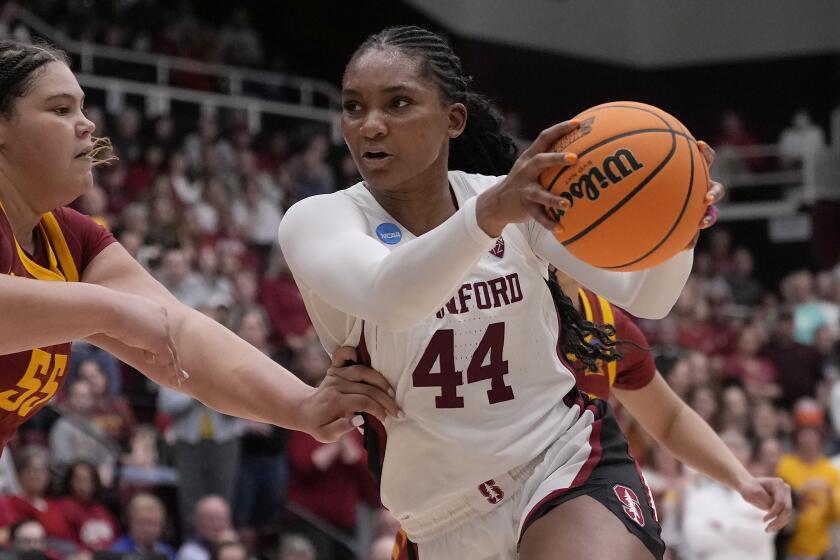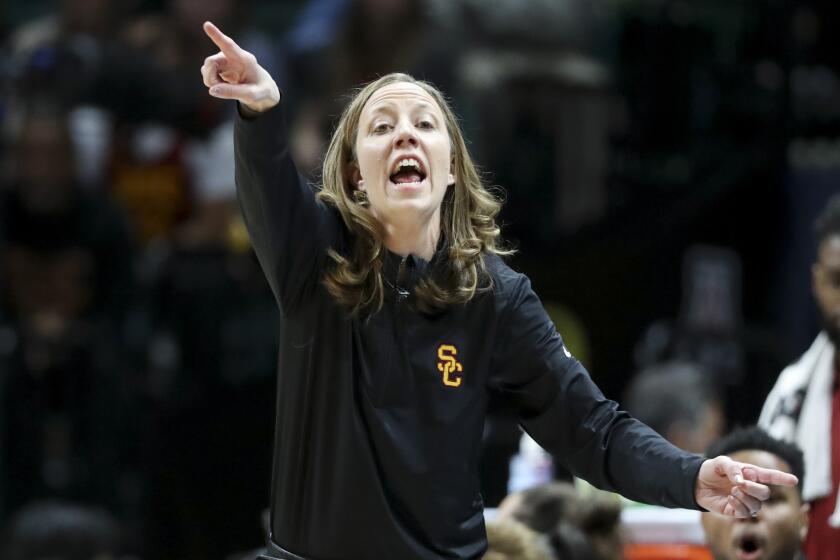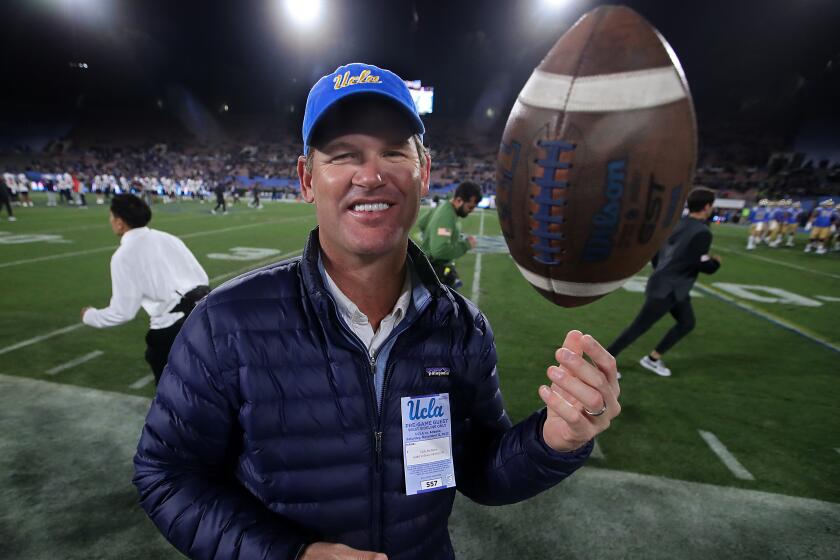BCS Standings Bring Questions
Initial reaction to Monday’s first release of the bowl championship series standings:
You call this progress?
The rankings system that for six years has determined college football’s national championship game participants has been modified and simplified to prevent a repeat of last season’s disaster in which USC finished No. 1 in both human polls but No. 3 in the final BCS standings.
Yet, as Monday’s release indicates, the C in BCS could still end up standing for “controversy.”
USC opened as undisputed first-week BCS king with No. 1 rankings in both polls and the system’s computer component but there was confusion just below as Miami debuted ahead of Oklahoma in the important second position.
In the new formula, a calculation that gives equal weight to the two human polls and the computers, USC opened with a BCS average of .9912.
Miami was second at .9187, followed by Oklahoma at .9161.
Oklahoma’s place was a surprise because it is No. 2 in both human polls, whereas Miami is fourth in the Associated Press poll and third in the ESPN/USA TODAY coaches’ poll.
Auburn is fourth in the first BCS standings, followed by Florida State, Wisconsin, Utah, California, Tennessee and Georgia.
The top two schools in the final BCS standings on Dec. 5 will play for the BCS national title in the Orange Bowl on Jan. 4.
BCS coordinator Kevin Weiberg said it was too early to draw conclusions about the new system.
“I think it’s important that there not be an overreaction to this first poll,” he said.
Yet, it’s fair to say a mini-controversy was the last thing Weiberg and other BCS commissioners wanted in the first week.
“I suppose there’s a little bit of irony there,” Weiberg said.
Monday’s first BCS posting was only the first snapshot of a long season and Weiberg said the Miami-Oklahoma situation would work itself out.
Despite its No. 2 ranking in both polls, Oklahoma was dragged into the third BCS spot because of its No. 5 ranking in the computer component.
Weiberg said several computers factored in a school’s road record and that Oklahoma had played only one true road game this year, last week at Kansas State.
Weiberg said that Oklahoma’s No. 5 computer ranking might be a one-week anomaly.
“I think that it’s very unlikely that that would hold up through the balance of the season,” he said.
Oklahoma Coach Bob Stoops said he was not yet concerned about any potential controversy.
“It really makes no difference where anyone is ranked today,” Stoops said in a statement released by the school “There is too much of this season left to play for anyone to get too worked up about this now. The bottom line is that you have to go out there and win your games.”
Tweaks in the BCS this year were intended to make sure a school ranked first in both polls could not finish third in the BCS standings.
Yet, the new formula may not protect a team that is second in both polls, especially if there is little distinction separating the second and third teams, at which point the computers may play a deciding role.
“Even though two-thirds of the formula is driven by the human polls, we’re counting actual votes here and if there is a close margin, the computer polls are going to have some significant influence,” Weiberg said.
In one of the more interesting story lines, Utah made its BCS debut at No. 7, the highest first-week ranking by a non-BCS school.
Utah, which trails No. 6 Wisconsin by a sliver, .7251 to .7255, is trying to become the first non-BCS school to qualify for a major bowl game.
Utah earns an automatic berth if it finishes sixth or better in the final BCS standings and can be considered for one of two at-large berths if it finishes in the top 12.
*
(BEGIN TEXT OF INFOBOX)
Top 12
Associated Press and coaches polls each count for one-third of a team’s score in the BCS standings; the other third is a compilation of six computer rankings. Finishing in the top six guarantees a BCS bowl bid. The conference champions from the ACC, Big Ten, Big 12, Big East, Pacific 10 and SEC make up six of the eight teams in the four BCS games -- the Orange, Sugar, Rose and Fiesta bowls. The other two spots go to at-large teams. A top-12 ranking is necessary to be eligible for one of the at-large spots.
*--* No School AP Coach BCS Pts 1. USC 1 1 9912 2. MIAMI 4 3 9187 3. OKLAHOMA 2 2 9161 4. AUBURN 3 4 9036 5. FLORIDA ST. 5 5 8072 6. WISCONSIN 6 7 7255 7. UTAH 9 10 7251 8. CALIFORNIA 7 8 6733 9. TENNESSEE 11 13 6331 10. GEORGIA 10 6 6090 11. TEXAS 8 9 6027 12. PURDUE 12 12 5248
*--*
Go beyond the scoreboard
Get the latest on L.A.'s teams in the daily Sports Report newsletter.
You may occasionally receive promotional content from the Los Angeles Times.




